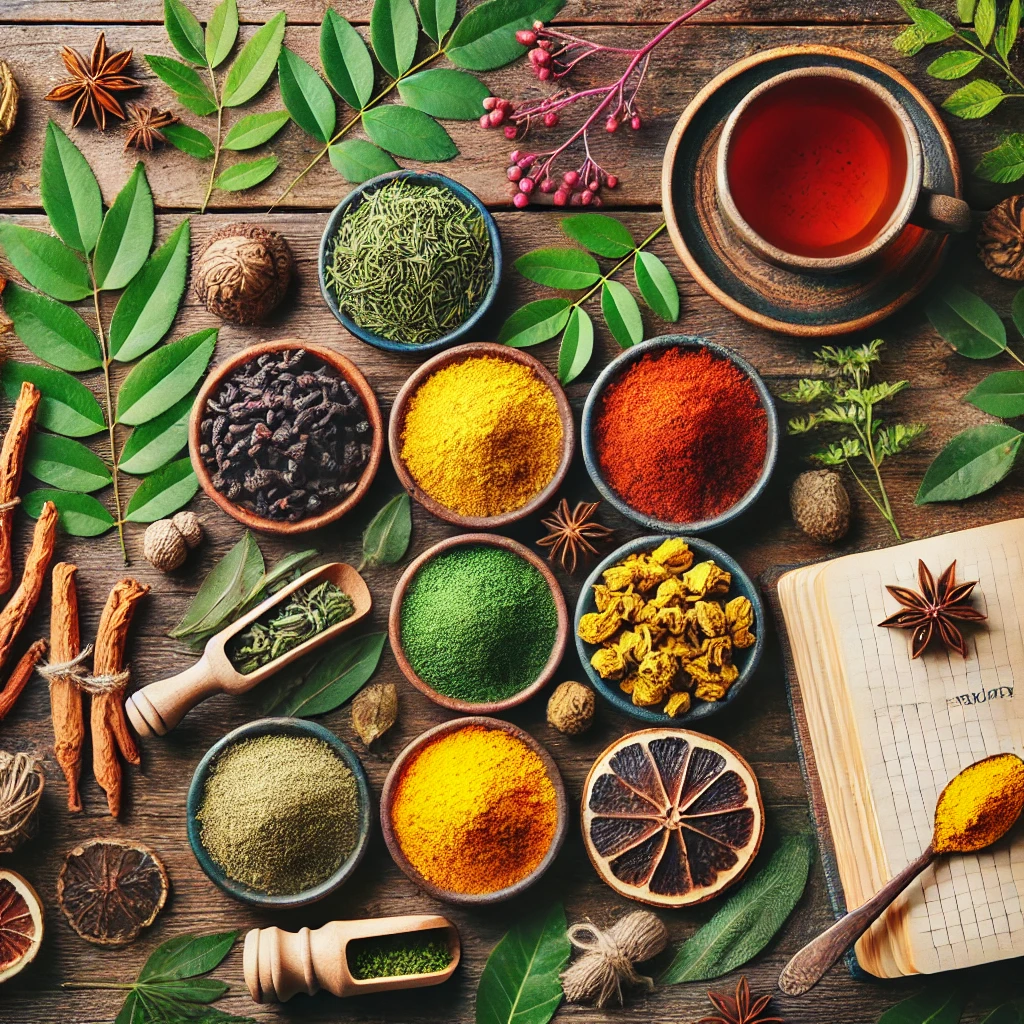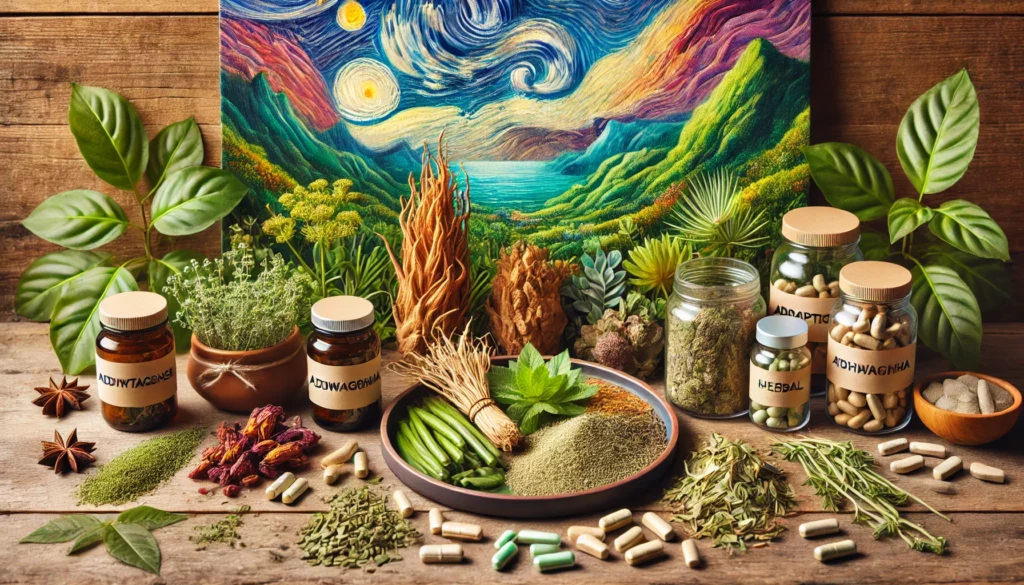Social anxiety can be a debilitating condition. It can hinder personal relationships, career progression, and overall quality of life.
For those grappling with this disorder, the search for effective treatments is often a journey. Traditional therapies and medications can be beneficial, but they may not be enough.
This is where natural supplements come into play. They can serve as a complementary approach to conventional treatments.
Our focus in this article is on these natural supplements. We delve into their potential benefits in alleviating symptoms of social anxiety.
We’ll explore various supplements, from minerals like magnesium to amino acids like L-Theanine. We’ll also discuss adaptogens like Ashwagandha and essential fatty acids like Omega-3.
Each supplement will be examined in detail. We’ll look at the scientific research backing their use and their potential side effects.
This article aims to be a comprehensive guide. It’s designed to help health and wellness coaches, science journalists, and biohackers.
Whether you’re seeking to advise clients, write engaging content, or optimize your mental health, this guide is for you. Let’s delve into the world of natural supplements for social anxiety.
You may also like: Top Supplements to Alleviate Anxiety Naturally
Understanding Social Anxiety
Social anxiety disorder, also known as social phobia, is more than just shyness. It’s a profound fear of social situations that can lead to significant distress. Individuals with this disorder often worry excessively about being judged or scrutinized by others.
The prevalence of social anxiety disorder is surprisingly high. According to research, it affects approximately 7-13% of the population globally. This makes it one of the most common anxiety disorders.
Common symptoms include intense fear in social settings, avoidance of social interactions, and physical symptoms like sweating or trembling. These symptoms can interfere with everyday activities such as work, school, or personal relationships.
The condition often manifests during adolescence, though it can begin in childhood or adulthood. It’s crucial to recognize it early for effective management.
Managing social anxiety requires a comprehensive approach. While therapy is beneficial, understanding the underlying factors is equally important.
Factors contributing to social anxiety include genetic, environmental, and biological elements. Here’s a list of potential influences:
- Family history and genetics
- Environmental stressors and early childhood experiences
- Biological factors, including brain chemistry
Understanding these influences can help in developing effective management strategies. Now, let’s delve into the role neurotransmitters play in social anxiety.

The Role of Neurotransmitters in Social Anxiety
Neurotransmitters are chemical messengers that play a pivotal role in regulating mood and anxiety. In social anxiety, certain neurotransmitters like serotonin, dopamine, and gamma-aminobutyric acid (GABA) are often imbalanced.
Serotonin is particularly known for its role in mood regulation. Low levels of serotonin are associated with increased anxiety and mood disorders.
GABA, a neurotransmitter with calming effects, is often decreased in individuals with social anxiety. An imbalance in these chemicals can exacerbate anxiety symptoms.
Understanding the neurochemical basis of anxiety aids in developing better treatments. It also highlights the potential benefits of supplements that can modulate neurotransmitter levels.
Traditional Treatments vs. Natural Supplements
Traditional treatments for social anxiety generally include cognitive-behavioral therapy (CBT) and medication. These methods aim to reduce symptoms and improve social functioning. CBT, a popular therapy choice, helps patients alter negative thought patterns.
Medications like selective serotonin reuptake inhibitors (SSRIs) are often prescribed. They work by balancing neurotransmitter levels, though they may have side effects. However, not everyone finds relief with these treatments. This has led many to explore complementary approaches.
Natural supplements serve as an adjunct to traditional treatments. They offer potential benefits with fewer side effects. Many people turn to natural supplements because they are perceived as safer.
Here’s a comparison of traditional treatments and natural supplements:
Traditional Treatments:
- Therapy (e.g., CBT)
- Medications (e.g., SSRIs)
- Long-term commitment needed
Natural Supplements:
- May complement existing treatments
- Generally fewer side effects
- Potentially beneficial for some individuals
Incorporating natural supplements can be beneficial in a holistic approach to managing social anxiety. As always, it’s crucial to consult with a healthcare professional before starting any new regimen.
Key Natural Supplements for Social Anxiety
Natural supplements provide an alternative for managing social anxiety. They can offer a more holistic approach to treatment. Many turn to these supplements for their potential benefits and relatively low risk.
These supplements aim to balance neurotransmitters, reduce stress, and promote relaxation. Evidence supports their efficacy in alleviating symptoms of social anxiety. They can work alongside traditional treatments, enhancing overall effectiveness.
In the following sections, we will explore several natural supplements. Each has unique properties and potential benefits. Understanding these can aid in making informed choices about supplementing for social anxiety.
Magnesium: The Calming Mineral
Magnesium is an essential mineral that plays a critical role in the nervous system. It acts as a natural relaxant, helping to calm the brain. When magnesium levels are low, anxiety levels tend to rise.
Research shows that magnesium helps manage symptoms of anxiety. It does so by moderating neurotransmitters in the brain, like serotonin. It also aids in muscle relaxation, which can ease physical tension associated with anxiety.
Many foods rich in magnesium, such as leafy greens and nuts, can be easily incorporated into the diet. However, supplements may be necessary for those with higher needs. Regular magnesium intake can be a simple yet effective way to manage social anxiety symptoms.
L-Theanine: The Relaxation Amino Acid
L-theanine is an amino acid primarily found in tea leaves. It promotes relaxation without causing drowsiness. This makes it ideal for individuals with social anxiety who need to stay alert.
Studies suggest L-theanine increases alpha brain wave activity. This activity is linked to states of relaxation and creativity. It also enhances dopamine and serotonin levels, contributing to its anxiety-reducing effects.
L-theanine supplements are popular for their calming properties. They can help ease social anxiety in situations where maintaining focus is crucial, such as public speaking. This amino acid proves beneficial for natural anxiety management.
Ashwagandha: The Stress-Reducing Adaptogen
Ashwagandha is an ancient medicinal herb known for its adaptogenic properties. Adaptogens help the body adapt to stressors, reducing anxiety levels. It modulates cortisol, the stress hormone, thereby managing anxiety.
Clinical trials have shown that ashwagandha effectively reduces stress and anxiety. Its benefits extend to improving sleep and boosting mental clarity. These effects help people cope with social anxiety by enhancing their overall well-being.
Incorporating ashwagandha into daily life can be straightforward. It is available in capsule, powder, or tincture forms. Many find it a valuable addition to their anxiety management routine.
Omega-3 Fatty Acids: Brain Health and Mood Regulation
Omega-3 fatty acids are crucial for brain health and mood regulation. They are found in high concentrations in fish oil. These healthy fats are integral to maintaining optimal brain function.
Research indicates that omega-3s may have significant effects on anxiety and depression. They help regulate neurotransmitters involved in social anxiety. Regular consumption can lead to improved mood and reduced anxiety levels.
Sources of omega-3s include fish like salmon and plant-based options like flaxseeds. Supplements offer a convenient alternative for those who don’t consume enough dietary sources. Omega-3s are promising for supporting mental health and reducing social anxiety.
Probiotics: Gut Health and the Brain Connection
The gut-brain axis is a concept that highlights the connection between intestinal health and mental state. Probiotics are beneficial bacteria that support a healthy gut. They have gained attention for their potential role in managing anxiety.
Studies suggest that probiotics can influence mood by affecting gut bacteria balance. This can lead to changes in the production of neurotransmitters like serotonin. A healthy gut promotes a calmer mind.
Incorporating probiotics into one’s diet can be achieved through foods like yogurt, sauerkraut, and supplements. Supporting gut health with probiotics could play a role in easing social anxiety symptoms.
B Vitamins: Essential for Neurotransmitter Synthesis
B vitamins, particularly B6, B9, and B12, are vital for neurotransmitter synthesis. They help in the production and regulation of serotonin and dopamine. Deficiencies in these vitamins can contribute to increased anxiety.
Supplementing with B vitamins has shown promise in reducing anxiety and stress levels. They aid in energy production and enhance mood. This makes them essential for those dealing with social anxiety.
B vitamins are found in whole grains, meats, and legumes. Supplements are also widely available for individuals with dietary restrictions. Ensuring adequate intake of B vitamins can support mental health and reduce anxiety symptoms.
Vitamin D: The Sunshine Vitamin and Mood
Vitamin D, often referred to as the sunshine vitamin, is essential for mental health. It is produced in the skin in response to sunlight. Low levels of Vitamin D have been linked to mood disorders, including anxiety.
Research suggests that Vitamin D supplementation can help improve mood and reduce anxiety. It interacts with neurotransmitters and hormones that affect mood. Maintaining adequate Vitamin D levels is crucial for emotional health.
Dietary sources include fortified foods and fatty fish, but sun exposure is most effective. In regions with low sunlight, Vitamin D supplements may be necessary. Supporting mood with Vitamin D is a simple step toward managing social anxiety.
Herbal Remedies: Chamomile, Lavender, and Lemon Balm
Herbal remedies offer a natural path to calming the mind and easing anxiety. Chamomile, lavender, and lemon balm are known for their soothing properties. They have been used for centuries in traditional medicine.
Chamomile tea is renowned for its calming effects. It helps reduce stress and promote sleep, addressing key aspects of anxiety. Lavender oil is often used in aromatherapy for its relaxing scent, which can help lower anxiety.
Lemon balm has been shown to reduce anxiety and improve mood. It can be consumed as a tea or in supplement form. These herbal remedies provide accessible and gentle options for managing social anxiety.
Amino Acids: GABA and 5-HTP for Anxiety Control
Amino acids like GABA and 5-HTP play important roles in anxiety modulation. GABA is the primary inhibitory neurotransmitter that reduces neural excitability. It promotes relaxation and counteracts the overstimulation linked with anxiety.
5-HTP is a precursor to serotonin, the neurotransmitter that regulates mood. Increasing serotonin levels can alleviate anxiety symptoms. Both amino acids support calmness and emotional balance.
These amino acids are available in supplement form. Individuals dealing with social anxiety might find them beneficial in managing stress and enhancing mood. Together, they offer promising natural avenues for anxiety control.

Safety, Efficacy, and Quality Considerations
When exploring natural supplements for social anxiety, safety is paramount. Not all supplements are created equal in terms of quality. It’s essential to choose products from reputable manufacturers.
Efficacy varies from person to person, depending on several factors. Individual responses to supplements can differ, affected by genetics and other health conditions. Setting realistic expectations helps in evaluating their impact on anxiety.
Quality supplements typically undergo third-party testing for purity and potency. Checking for certifications can ensure you’re choosing effective and safe products. Always prioritize high-quality sources to maximize benefits and minimize risks.
Consulting Healthcare Providers
Before starting any new supplement regimen, consulting a healthcare provider is crucial. Health professionals can offer personalized advice based on medical history. They can guide you on suitable supplements and proper dosages.
Discussing supplements with a provider can prevent adverse reactions. Especially if you are on medications or have chronic health issues. Tailoring supplement use to individual needs promotes safety and efficacy in managing anxiety.
Potential Side Effects and Interactions
While natural supplements are often considered safe, they can still have side effects. Some may cause digestive issues or mild headaches. Awareness of possible adverse effects is important for informed use.
Interactions with medications are a critical consideration. Supplements can alter the effects of prescription drugs, sometimes dangerously. Consulting with a healthcare provider helps avoid potential complications and ensures safety.
The Importance of Quality Sleep and Diet
Quality sleep is vital for overall mental health and anxiety management. It restores energy, regulates mood, and reduces stress. Poor sleep patterns can exacerbate social anxiety symptoms, leading to a vicious cycle.
A nutrient-rich diet supports the efficacy of supplements. Essential vitamins and minerals from whole foods contribute to brain health. They provide a foundation for supplements to work more effectively.
Incorporating balanced meals and adequate sleep into daily routines can enhance the benefits of natural supplements. Together, they form a comprehensive approach to managing social anxiety. A proactive lifestyle change supports long-term well-being and reduces anxiety levels.

Biohacking and Nootropics for Social Anxiety
Biohacking involves taking control of your own biology to achieve mental and physical enhancements. For those with social anxiety, this can mean optimizing brain function through targeted strategies. Nootropics are cognitive enhancers that can be part of this approach.
Many individuals turn to nootropics to boost mental clarity and reduce anxiety. Common nootropics include ingredients like Rhodiola Rosea and Bacopa Monnieri. These substances are used to improve mood, focus, and stress resilience.
Understanding how these supplements affect your brain is key. Engaging in safe biohacking ensures that you make informed decisions about your mental health. It’s about knowing your own physiology and responding with solutions tailored to your specific needs.
Cognitive Enhancers and Brain Health
Cognitive enhancers help maintain and improve brain performance. They are especially popular among those looking to alleviate anxiety-induced cognitive impairments. Memory, attention, and problem-solving skills often benefit from these supplements.
Many cognitive enhancers work by improving brain circulation or supporting neurotransmitter production. For example, Ginkgo Biloba is thought to increase blood flow, potentially enhancing mental alertness. Meanwhile, Phosphatidylserine plays a role in neurotransmitter release and neuron communication.
By choosing cognitive enhancers wisely, individuals with social anxiety can support brain health. It’s about enhancing cognitive faculties that contribute to a balanced mental state. With the right approach, cognitive enhancers can be a valuable tool in an anxiety management regimen.
The Role of Exercise and Lifestyle in Managing Anxiety
Exercise is a powerful ally in fighting social anxiety. Physical activity releases endorphins, which improve mood and reduce stress. Regular exercise also promotes better sleep, which is crucial for mental health.
Lifestyle choices play an essential role in managing anxiety. Activities like yoga and meditation encourage relaxation and mindfulness. These practices help individuals manage stress and enhance their overall sense of well-being.
Balancing work, leisure, and social activities creates a supportive environment for reducing social anxiety. Integrating healthy habits and routines cultivates resilience against anxiety symptoms. A holistic lifestyle approach, alongside supplements, can significantly impact managing social anxiety effectively.

The Future of Natural Supplements for Social Anxiety
The landscape of natural supplements for social anxiety is evolving rapidly. Advancements in research are continually shedding light on how these supplements work. As science progresses, so does our understanding of anxiety management.
In the future, we can expect more targeted formulations. These will be tailored to address specific biochemical needs associated with social anxiety. Precision in treatment can lead to more effective relief with fewer side effects.
Moreover, increased public awareness is pushing for safer and more reliable products. This demand will drive innovation and transparency in the supplement industry. The future holds promise for those seeking natural pathways to manage social anxiety effectively.
Breakthroughs in Brain Science and Personalized Medicine
Recent breakthroughs in brain science are revolutionizing the approach to social anxiety. Researchers are uncovering new insights into the complex workings of the brain. These findings inform the development of more effective treatments.
Personalized medicine tailors treatments to individual genetic profiles. This bespoke approach is becoming more feasible with advancements in genomic technology. It allows for customized supplement recommendations that consider unique biochemical responses.
As research continues, we’re likely to see even more refined strategies. These will integrate brain science insights with personalized medicine. Ultimately, this fusion holds the potential to transform how we manage social anxiety in a highly individualized manner.
The Importance of Holistic and Personalized Approaches
Managing social anxiety requires a comprehensive strategy. Holistic approaches address the physical, mental, and emotional aspects of health. This multidimensional perspective is crucial for sustained relief from anxiety symptoms.
Personalized strategies take into account individual preferences and lifestyles. What works for one person may not work for another. Understanding personal triggers and responses ensures more effective management.
Integrating personalized and holistic methods provides a balanced approach. It empowers individuals to make informed decisions regarding their health. This convergence of strategies enhances overall well-being and supports a healthier, more resilient response to social anxiety.
Conclusion: Empowering Individuals with Knowledge and Tools
Knowledge is a powerful tool in managing social anxiety. Understanding the available options enables informed decisions. This empowers individuals to take control of their mental health journey.
Access to reliable information and practical tools can transform lives. It fosters confidence in exploring natural supplements as part of a holistic approach. Empowerment comes from knowing that effective management is within reach.
The Role of Continuous Learning and Community Support
Continuous learning keeps individuals informed about new developments. Staying updated on research and trends is crucial. It can significantly enhance the management of social anxiety.
Community support offers encouragement and shared experiences. Being part of a supportive network can provide motivation. This collective knowledge base helps individuals not feel alone in their journey.
Final Thoughts on Supplements for Social Anxiety
Natural supplements offer a valuable resource for alleviating social anxiety. They provide options that may complement traditional treatments. However, they are most effective when integrated into a comprehensive plan.
Ultimately, personal experimentation and expert guidance are key. Finding the right combination of supplements and lifestyle changes can lead to meaningful improvements. Empowering oneself with knowledge and support is essential for success.
References and Further Reading
To delve deeper into social anxiety supplements, explore reputable sources. Scientific journals and health websites offer evidence-based insights. Books by experts on anxiety management can provide additional guidance.
Online forums and support groups can also be valuable resources. They offer shared experiences and tips from peers. Continuing education through these resources fosters a well-rounded approach to managing social anxiety.
Further Reading:
Verywell Mind: Herbal Supplements Used for Social Anxiety
Mayo Clinic: Social anxiety disorder (social phobia)
Healthline: Social Anxiety Disorder Treatment Options
Important Note: The information contained in this article is for general informational purposes only, and should not be construed as health or medical advice, nor is it intended to diagnose, prevent, treat, or cure any disease or health condition. Before embarking on any diet, fitness regimen, or program of nutritional supplementation, it is advisable to consult your healthcare professional in order to determine its safety and probable efficacy in terms of your individual state of health.
Regarding Nutritional Supplements Or Other Non-Prescription Health Products: If any nutritional supplements or other non-prescription health products are mentioned in the foregoing article, any claims or statements made about them have not been evaluated by the U.S. Food and Drug Administration, and such nutritional supplements or other health products are not intended to diagnose, treat, cure, or prevent any disease.


